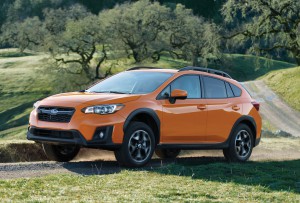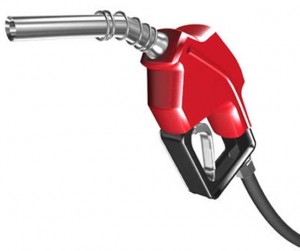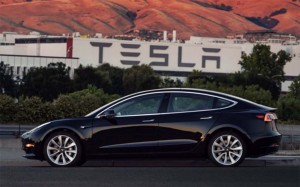Nearly eight of 10 Americans – including 68% of Republicans – favor the strict Corporate Average Fuel Economy, or CAFE, standards set to phase in between now and 2025, according to a new study by the Consumer Federation of America.
The non-profit group published the results of its findings as the Trump Administration prepares to reopen a review of the mileage regulations enacted under President Barack Obama. CFA officials also countered auto industry claims that the CAFE rules are too expensive, arguing that motorists would save more than $900 on fuel over a five-year period, or nearly three times more than high-mileage technology would add to the price of the typical vehicle.
During a teleconference, CFA Public Affairs Director Jack Gillis said he believes the odds for a rollback are growing “weaker and weaker,” and warned such a move would likely trigger an intense legal battle.
(Despite cheaper gas, American motorists still check the mileage numbers when comparing vehicles to buy. Click Here for the story.)
The CFA survey was the 10th annual look at consumer attitudes on fuel economy and “the remarkable thing,” said the group’s legal chief Mark Cooper, “is that one thing has been consistent: the public demand for better fuel economy.” That has remained the case even as gasoline prices have fallen while sales of traditionally fuel-hungry SUVs has grown to record levels.
But while demand for utes might be up, added Gillis, sales have been growing most rapidly for the most fuel-efficient models, typically those that have seen 10% or better improvements in mileage.

Even as Americans switch from cars to light trucks, automakers have sharply boosted the fuel economy of their pickups and SUVs.
This year’s CFA study was released just a few months after Pres. Donald Trump ordered the Environmental Protection Agency to reopen a “mid-term review” of the current U.S. automotive mileage standards. Just days before leaving office, the Obama Administration’s EPA Director Gina McCarthy had ruled that the industry would have to go ahead and meet the 54.5 mpg goal – which actually translates into something closer to the mid-40 mpg range in real-world application.
That target had been set early in the Obama Administration as part of a broad compromise between automakers, environmentalists and regulators. But over the last two years, the industry had tried to back away, claiming the cost of the mandate would add too much to the price of a new vehicle. A study by the Center for Automotive Research, in Ann Arbor, Michigan, even warned that tens of thousands of automotive jobs could be lost if the rules weren’t relaxed.
Like other groups supporting the tough CAFE standards, the CFA has dismissed such arguments, Gillis countering that a nearly 50-year history of fuel economy standards has shown, “the cost of meeting regulations is always less than regulators thought and always significantly less than manufacturers claimed.”
According to CFA calculations, the 54.5 mpg target will add an average $325 to the price of the typical new vehicle but save $946 in fuel costs over five years. And the savings could rise substantially if fuel prices go back up to anywhere near the highs seen earlier this decade.
Countering industry claims that the ongoing shift from sedans and coupes to SUVs and pickups would make it more difficult to meet the new regulations, the CFA pointed out that CAFE has a sliding scale that reflects the size and class of individual vehicles. Larger products, such as full-size pickups, are allowed to get lower mileage.
What is perhaps the most important element of the new CFA survey is the fact that higher mileage claims bipartisan support. Among 1,008 American adults surveyed by landline or cellphone between July 13-16, 79% overall said they support the CAFÉ target, including 68% of Republicans. Only 18% said they opposed the rules.
(Another recent study also found huge support for CAFE rules. Click Here for more.)
Early on, there had been strong expectations the Trump Administration would act quickly to roll back, perhaps even eliminate the fuel economy guidelines. There was also some talk that Congress might act to eliminate the mileage rules entirely. The White House and EPA have not put a timetable on when a decision might be announced.
But that’s likely no surprise, said CFA’s Cooper. “They understand this is a huge issue….arguably, the single largest consumer cost issue this administration will deal with.” And anything other than a minor adjustment, Cooper warned, will clearly be met with intense legal challenges.
(Tesla killing off its least expensive Model S version. Click Here for the story.)



Most Americans favor this? Oh wait, either most Americans don’t realize that this is socialism, or the survey was not a random sample.